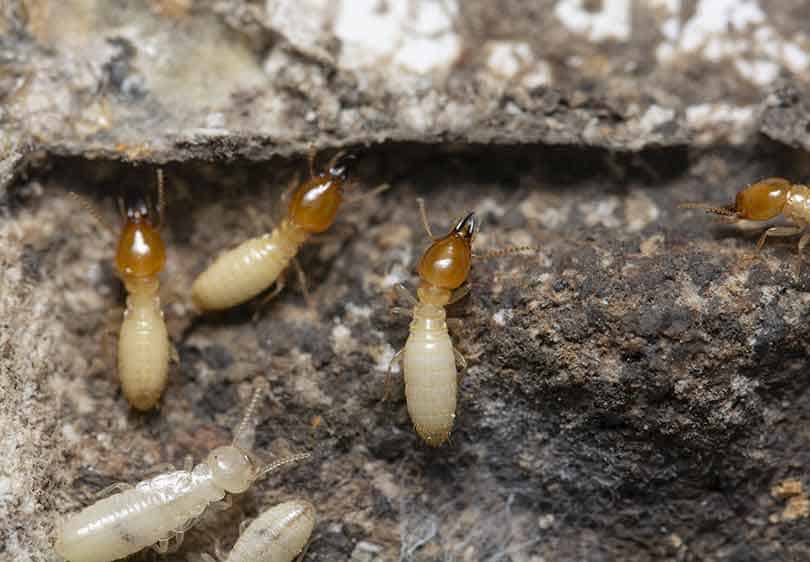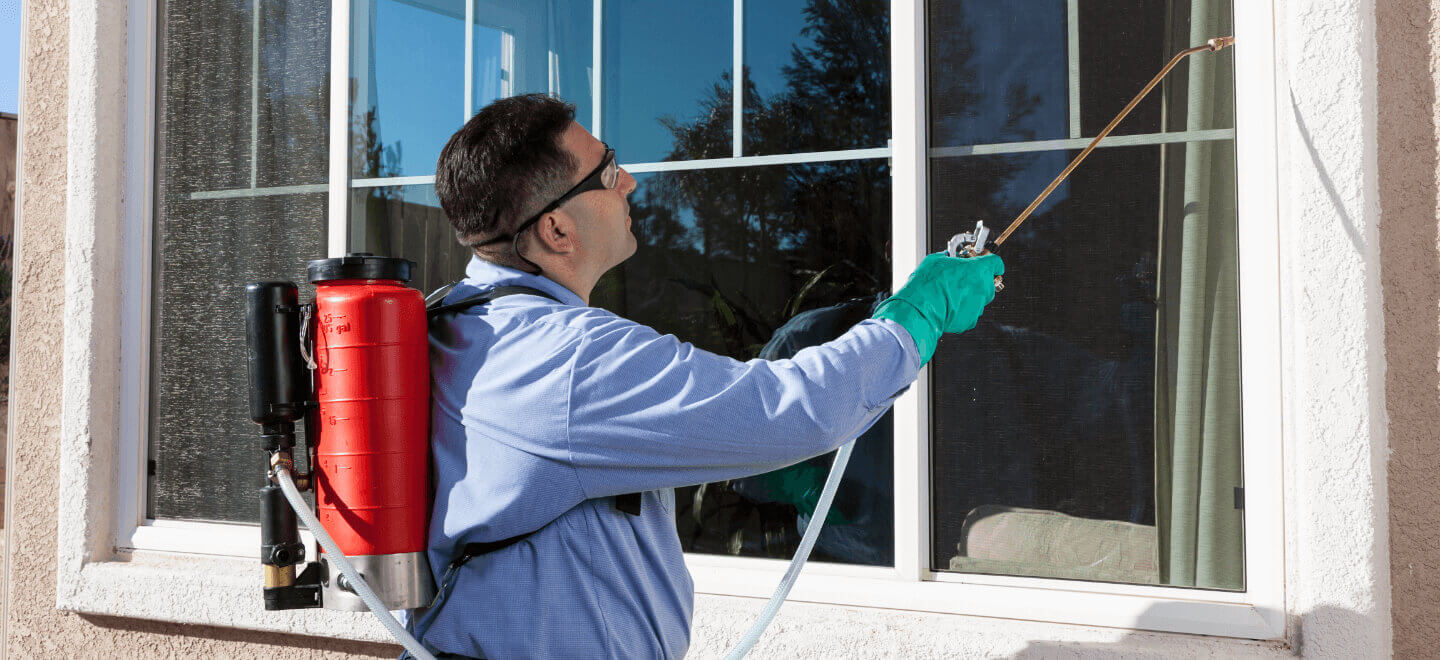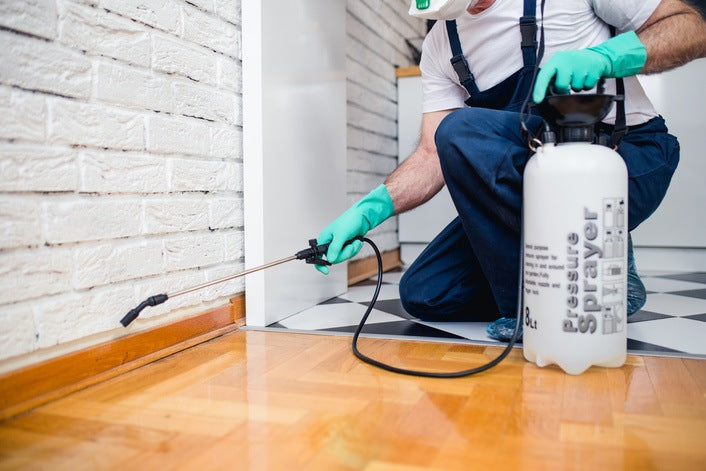Discovering the Different Kinds Of Pest Control Techniques and Their Applications
Pest control is an essential element of keeping a healthy and balanced and risk-free environment, whether it remain in residential, industrial, or agricultural settings. Numerous strategies have been established and improved over the years to efficiently manage and reduce bug invasions. From chemical methods that target specific pests to organic techniques that harness natural predators, the world of bug control is huge and diverse. Understanding the various kinds of bug control techniques and their applications is important for applying one of the most suitable and sustainable remedies. Let's explore the details of these approaches and exactly how they can be effectively used to address pest-related obstacles.
Chemical Insect Control Strategies
Chemical pest control techniques are widely made use of in agriculture and parasite monitoring to effectively remove or regulate pest invasions. These techniques involve the use of chemical materials, such as herbicides, pesticides, and insecticides, to decrease or eliminate pest populaces that position a threat to plants, livestock, or human health.
While chemical bug control methods can be highly reliable in taking care of insect populations, they additionally increase issues regarding prospective environmental and wellness dangers. Improper usage or overuse of chemical pesticides can cause contamination of air, water, and soil, hurting non-target microorganisms and causing long-lasting environmental damages. In addition, repeated exposure to chemical deposits may position health and wellness risks to farmworkers, customers, and wildlife. Therefore, it is vital to follow safety standards, use incorporated pest administration approaches, and take into consideration different methods to lessen the negative effects of chemical pest control strategies.
Organic Parasite Control Methods
 Organic bug control methods use living organisms to manage and reduce bug populaces in a ecologically friendly and sustainable way. This method involves presenting all-natural predators, bloodsuckers, or pathogens to control parasites without the demand for synthetic chemicals. One common approach is the launch of ladybugs to battle aphids in gardens, as ladybugs are natural killers of these harmful insects. Another instance is using Bacillus thuringiensis (Bt), a germs that generates toxic substances dangerous to certain insect larvae, to regulate caterpillars and insects.
Organic bug control methods use living organisms to manage and reduce bug populaces in a ecologically friendly and sustainable way. This method involves presenting all-natural predators, bloodsuckers, or pathogens to control parasites without the demand for synthetic chemicals. One common approach is the launch of ladybugs to battle aphids in gardens, as ladybugs are natural killers of these harmful insects. Another instance is using Bacillus thuringiensis (Bt), a germs that generates toxic substances dangerous to certain insect larvae, to regulate caterpillars and insects. 
Biological pest control approaches use a number of advantages over chemical methods. Overall, organic bug control approaches offer a effective and all-natural option to traditional chemical treatments, advertising a well balanced ecological community and healthier environments.
Physical Parasite Control Approaches
Making use of physical methods to control bugs entails the usage of mechanical or non-chemical methods to minimize and take care of pest infestations successfully. One common physical insect control approach is the installment of webs, displays, or fencings to obstruct pests from going into certain locations.
An additional physical technique is making use of traps, such as snap traps for rodents or scent catches for insects. These traps objective to catch insects without presenting any kind of danger to human beings or the setting. In addition, physical control approaches can consist of strategies like handpicking insects off plants, using vacuum gadgets to get rid of pests, or using warmth therapies to eradicate bed pests and various other bugs in plagued areas.
Integrated Bug Monitoring Methods
Applying an all natural technique to pest administration, Integrated Insect Management (IPM) strategies intend to integrate different effective strategies to regulate and stop insect infestations while minimizing ecological effect and guaranteeing sustainable bug control techniques. IPM includes the integration of numerous control approaches such as organic control, cultural techniques, mechanical control, and the cautious usage of pesticides.

In addition, IPM emphasizes the relevance of tracking and examining pest populaces to determine the most proper control approaches. By applying IPM techniques, bug control initiatives come to be more targeted and efficient, decreasing the dangers connected with excessive pesticide use and promoting long-lasting bug management remedies.
Natural and Organic Pest Control Options

One popular natural insect control approach is neem oil, originated from the seeds of the neem tree, which functions as a repellent and interrupts the development and development of bugs. Diatomaceous planet, a natural silica-based powder, is another reliable natural insect control choice that functions by dehydrating insects upon call. By including natural and organic pest control options into bug management techniques, people can properly control insects while decreasing injury to the atmosphere and advertising lasting techniques.
Conclusion
To conclude, different parasite control methods such as chemical, biological, physical, integrated insect administration, and all-natural alternatives are readily available for successfully handling bug problems. Each approach has its very own benefits and applications relying on the kind of bug and the atmosphere. By comprehending the different types of insect control methods and their applications, individuals can make informed decisions on the most appropriate approach to control pests and protect their property.
Chemical bug control strategies are extensively utilized in agriculture and insect management to effectively eradicate or control pest infestations - Orem Pest Control. All-natural bug control techniques involve using organic control agents, such as predators or bloodsuckers, to manage parasite populaces. By integrating all-natural and natural parasite control choices into parasite monitoring approaches, people can successfully regulate parasites while minimizing harm to the environment and advertising sustainable practices
In final thought, various moved here parasite control methods such as chemical, organic, physical, incorporated insect monitoring, and natural options are offered for efficiently taking care of insect infestations. By recognizing the different kinds of pest control strategies and their applications, individuals can make educated decisions on the most ideal method to regulate insects and shield their residential or commercial property.